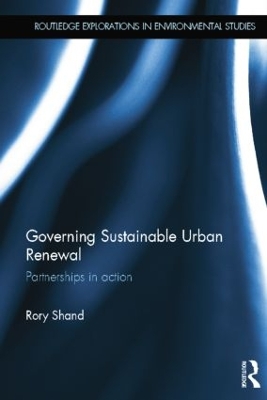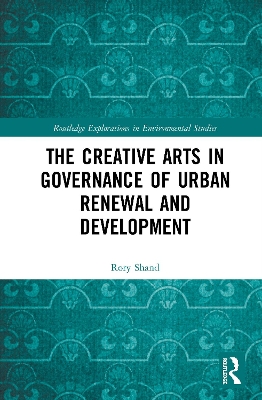Routledge Explorations in Environmental Studies
2 total works
Environmental and sustainability issues are currently stretched by economic concerns and policy areas such as housing and education are therefore needed more than ever to help regenerate the social and urban environment. Governing Sustainable Urban Renewal: Partnerships in Action uses detailed case studies from the UK, Germany and USA to explore the effect of institutional design and modes of governance and evaluates policy outputs, outcomes and best practice. In doing so, it illustrates where power and decision making lies in the delivery of urban renewal initiatives and examines the roles for communities in the governance process. The analysis offers insight into the formation of partnerships and networks that can help to overcome many of the obstacles faced in urban renewal and in the promotion of sustainable development in core urban areas.
Given the increasing commitment of governments throughout the world to renewal as a means for resolving entrenched environmental, social and governance problems, this timely new study should be of interest to students and researchers across a range of disciplines including environment studies, geography, public policy, governance and politics, sustainable development, planning and urban studies.
The Creative Arts in Governance of Urban Renewal and Development
by Rory Shand
This book focuses on the role of the creative sector in the governance of urban renewal and economic development initiatives.
Rory Shand examines the ways in which both the top-down nature of the creative sector, and the bottom-up roles of creative arts organisations, drive development and engage with local communities or areas in regeneration projects that target employment, training and education, as well as social engagement. Underpinning these projects are governance mechanisms, through delivery, funding and participation. Drawing on case studies from the UK, Germany and Canada, Shand compares national creative sector policies and creative arts bodies engaged in the governance of urban renewal and development programmes, as well as including a comparative chapter offering an overview of best and worst practice, which also examines and summarises the key themes across both theory and practice. In his concluding remarks, he highlights and discusses the key challenges posed by governance mechanisms to urban renewal and economic development programmes and identifies future comparative case studies in the field.
This book will be of great interest to students of environmental studies, public policy and politics and geography, as well as being a relevant resource for practitioners from NGOs, local and national levels of governments and community projects.

